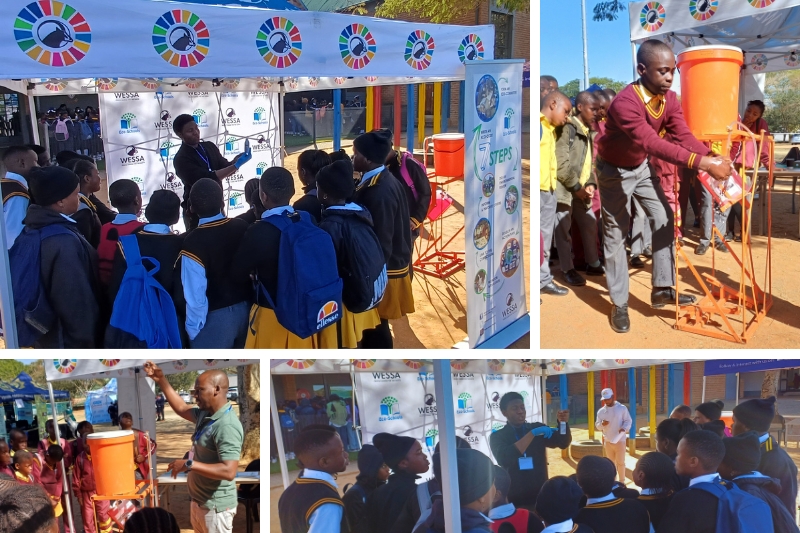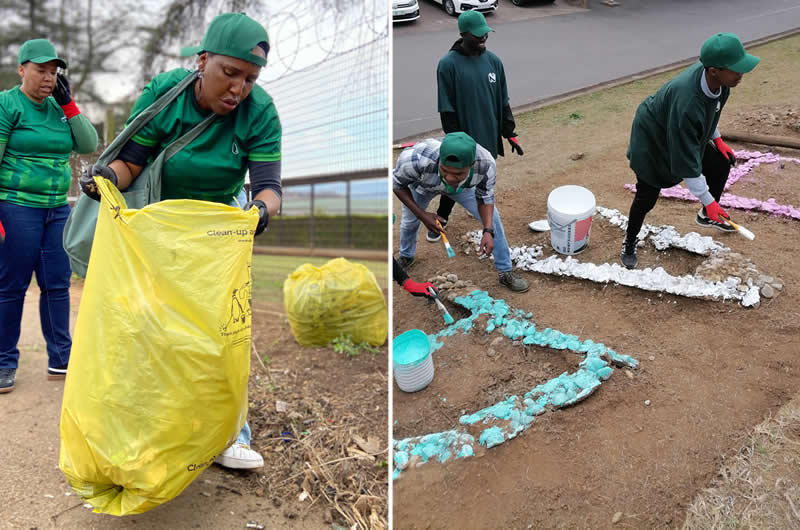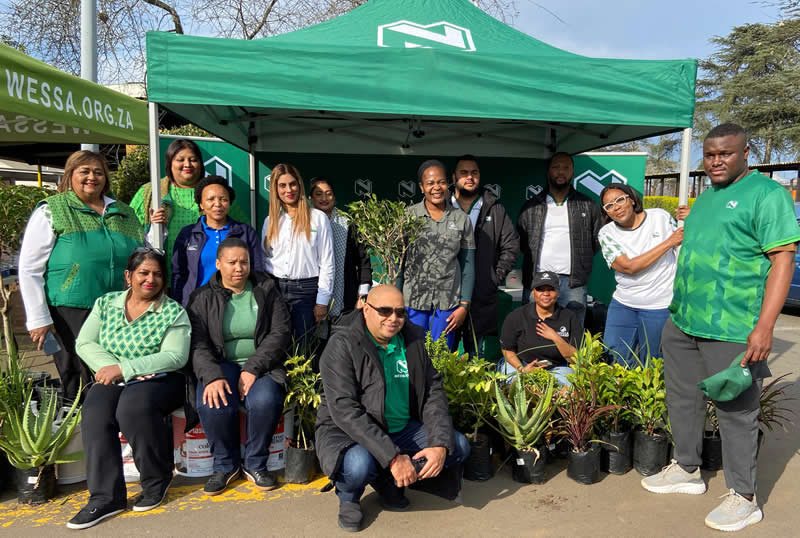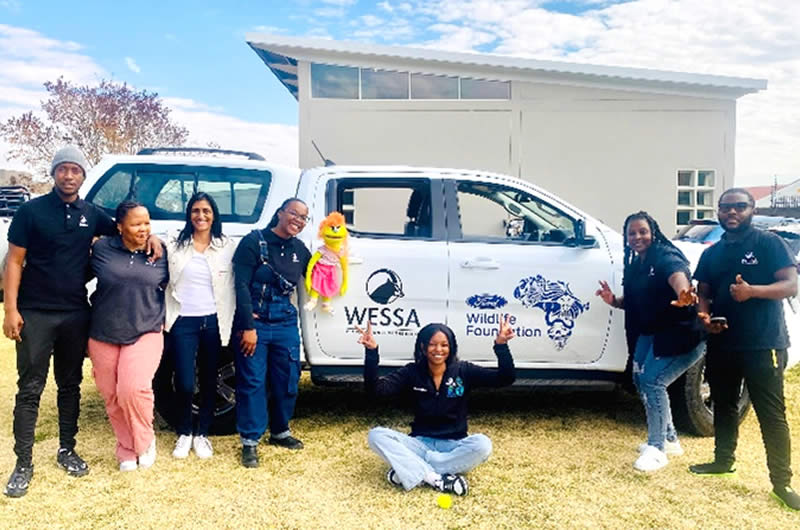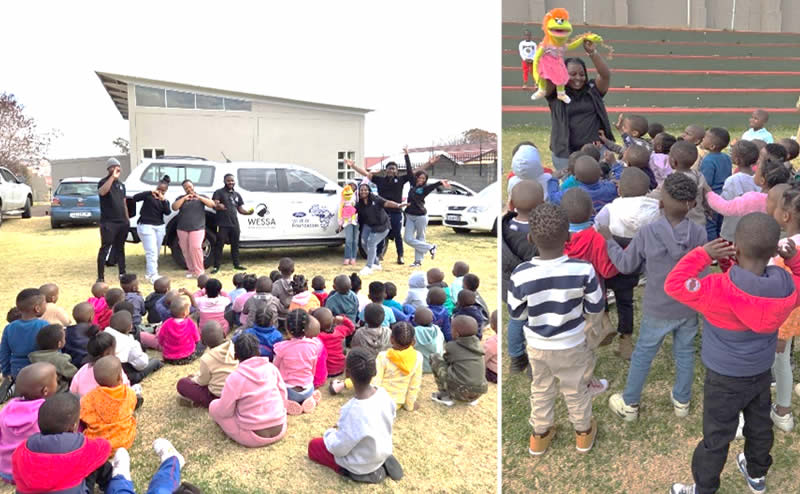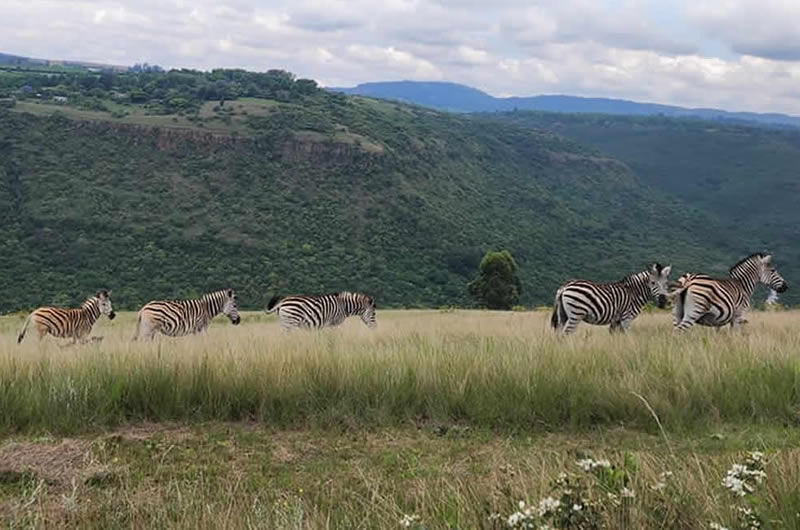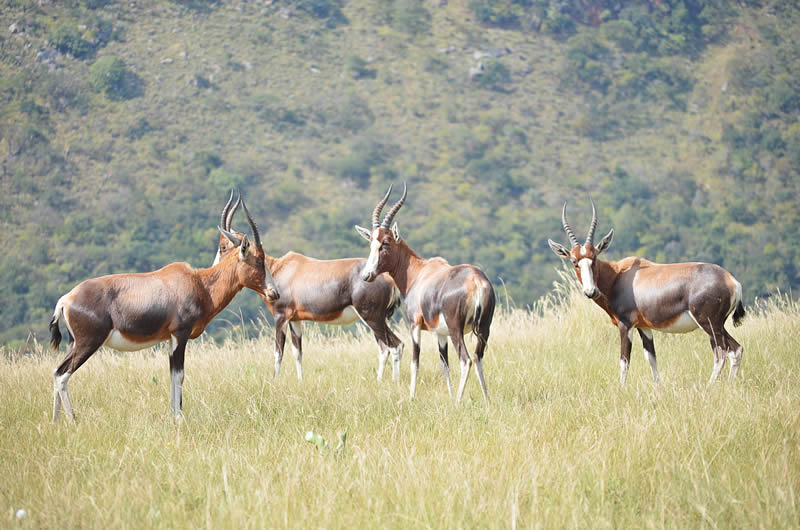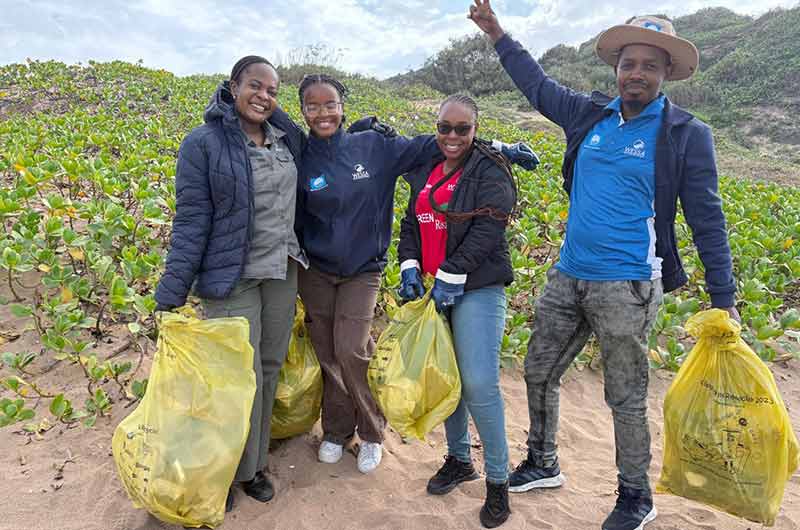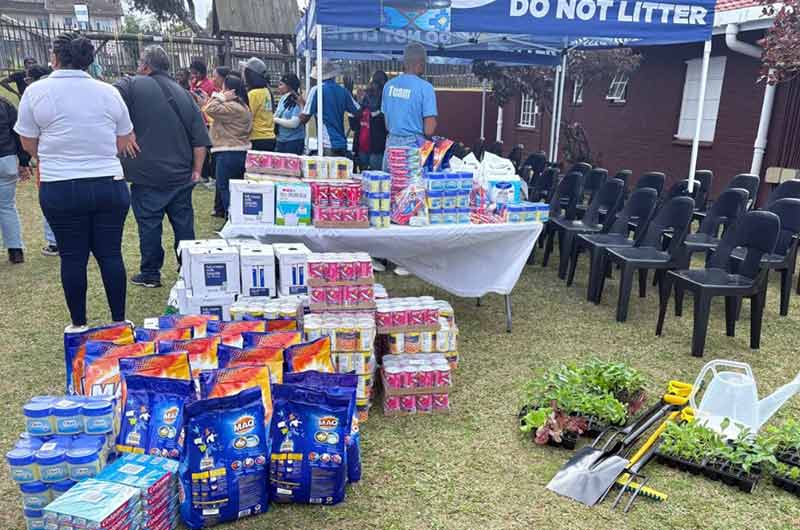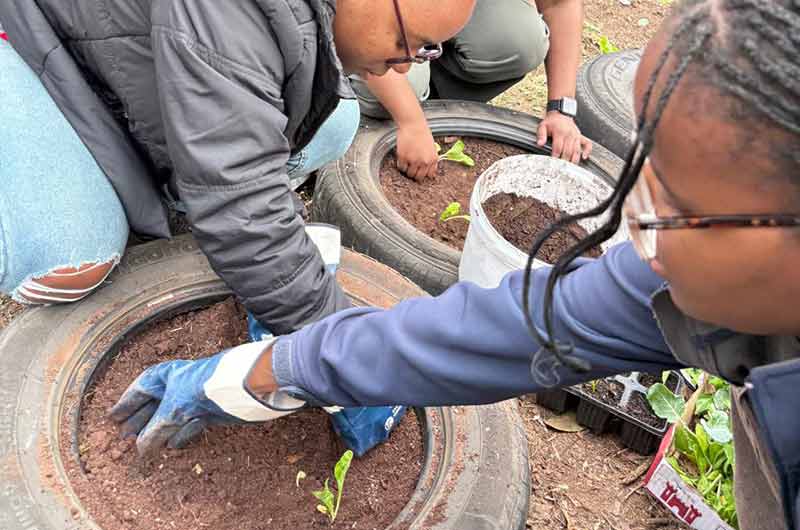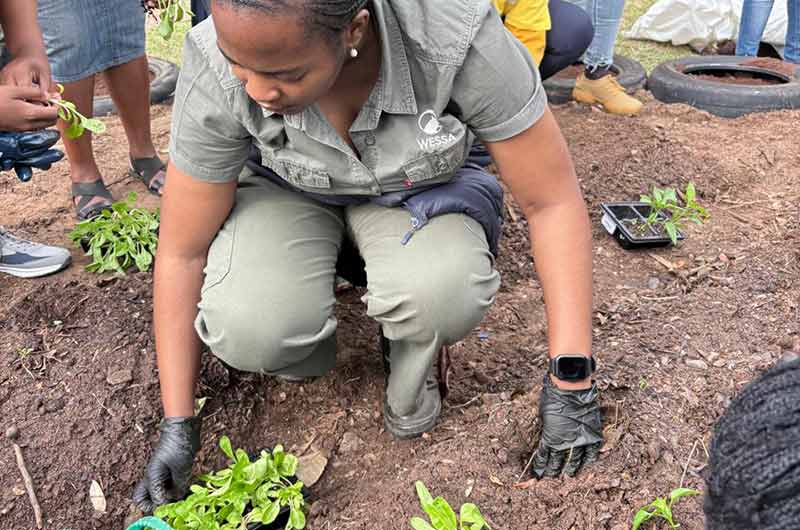
Nurturing literacy and healthy Living: a Mandela month celebration at Naledi Pre-Primary
In the spirit of Mandela Month, WESSA and Wispeco Aluminium continued their inspiring partnership at Naledi Pre-Primary School in Katlehong, this time turning their attention to literacy and healthy living.
Building on the momentum of June’s World Environment Day, which saw the transformation of the school’s toilet facility and a joyful day of environmental education, July’s initiative focused on creating safe and inspiring spaces for learning and growth.
With the hands-on support of Wispeco Aluminium staff volunteers, Naledi’s reading corners were revamped into vibrant, welcoming areas where young learners can fall in love with stories, words, and imagination.

Simultaneously, a brand-new vegetable garden was established, offering learners a hands-on experience of where food comes from and how healthy habits begin with the soil.

“Education is the most powerful weapon which you can use to change the world.” – Nelson Mandela
These words guided our July activities, reminding us that education is not confined to the classroom. By nurturing both minds and bodies, this initiative is helping to unlock the full potential of Naledi’s young learners.
This collaborative effort between WESSA and Wispeco Aluminium reflects the true heart of Mandela Month, active citizenship, shared responsibility, and meaningful impact. From improving sanitation to fostering literacy and food security, we are proud to be walking this journey of transformation alongside our partners.
Together, we are creating a nurturing learning environment rooted in dignity, curiosity, and care.

